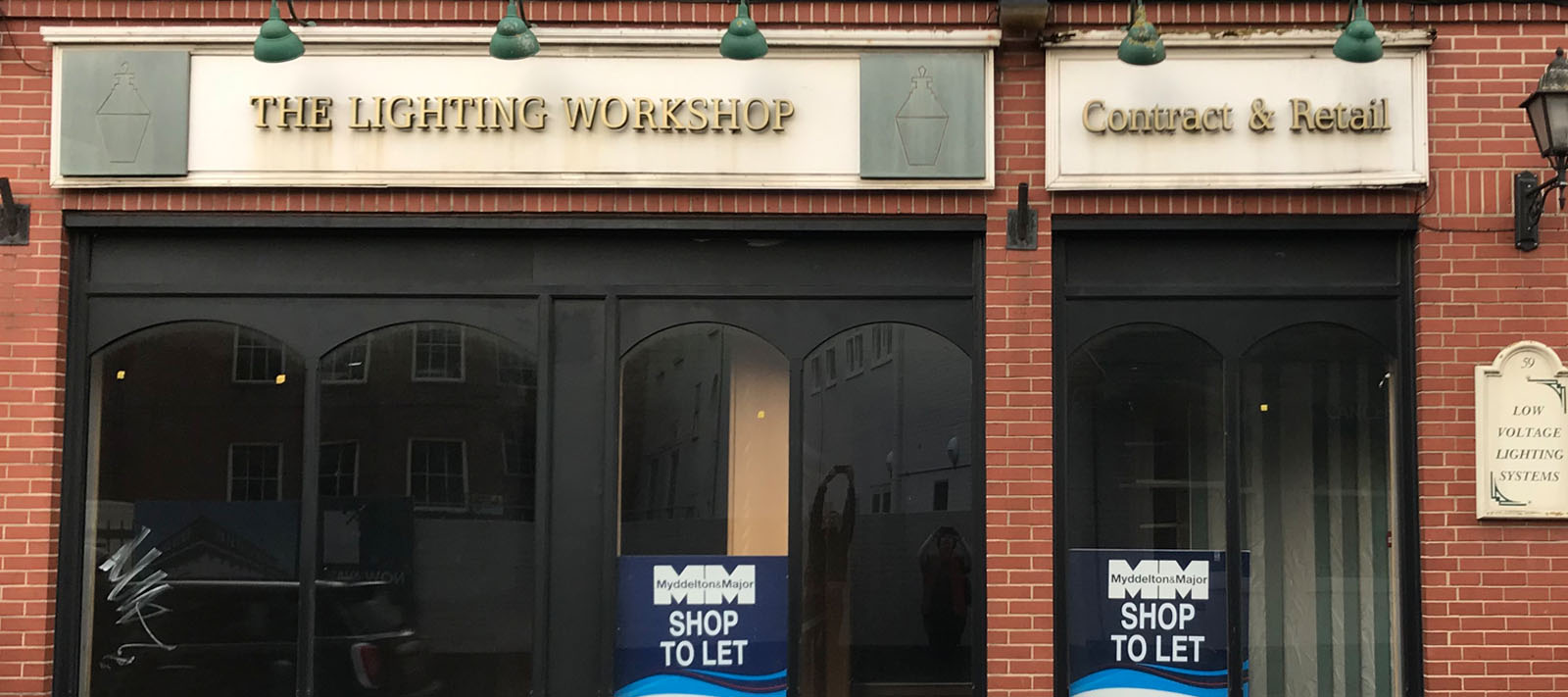
Where have all the lighting shops gone?
With the explosion of interest in lighting, countless style choices and advances in LED technology, it seems strange that when consumers most need specialist lighting expertise, it is disappearing from our high streets and towns. In 2018, the last lighting shop in Salisbury, The Lighting Workshop, closed down.
This is not an anomaly, and the closure of local lighting shops is being replicated across the country. So, what is driving the national demise of the specialist lighting shops? Fundamentally what it comes down to is that the we way we shop is changing. There are several factors contributing to this including year on year growth in online sales, years of austerity driving reduced net pay, buying power and lower disposable incomes. Consumers are thinking more and consuming less (which is a good and responsible thing) and economic uncertainty over Brexit is not inspiring consumer confidence, especially on high-value purchases.
All of these things make trading challenging and they apply equally to all retailers, so what is at the heart of the decline of lighting shops specifically? At Light My Space, we believe that the key to success for specialist lighting shops and retailers are:
- Customer Needs: lighting has become hugely technical. It’s not enough just to buy something that looks nice if it doesn’t give the quality, quantity or spread of light needed for its intended location. A lighting specialist needs to understand the customer’s lifestyle and what solutions are available to meet their specific requirements. Open plan living spaces and a trend for open height living areas (and mezzanine floors) all are challenging spaces to light well.
- Customer Choice: the choice of lighting types and styles has exploded and can be overwhelming. Lighting shops just can’t afford the physical space to display the range of products and have been slow to embrace or invest in in-store technology. Online retailers offer little information or guidance on their products (and often published details are not even correct) so it’s hard for customers to make the right choices. Lighting specialists need to have the technical knowledge and expertise across a vast range of lighting products and be willing to do the research necessary to match a customer with their perfect light.
- Customer Expectations: customer expectations are higher than ever before when it comes to what they buy. These expectations are present throughout the consumer buying experience, from how easy it is to find something, to how fast something can be delivered. Customers don’t want to queue… 6 minutes and 46 seconds is the average amount of time a shopper will wait, and 69% have decided not to buy an item because of the size of the queue. Lighting shops are vulnerable to losing customers in-store as providing advice and consultations takes time and these are often small businesses with a few staff who may not all have specialist product knowledge.
- Positive (Considered) Purchasing: some lighting shops have provided and championed artisan and locally-made products, however, demand is increasing exponentially for products that are also sustainably and/or ethically sourced and that reduce the eco-footprint and support responsible energy consumption. Unique products made of upcycled materials are gaining popularity and lighting specialists need to be providing information and access to these products and their makers.
- Innovation and Technology: the 2018 ban on halogen bulbs means that non-LED models and styles of light fixtures have very little value and no longevity. Retailers holding stock may be left facing a financial hit as it will be hard to sell their existing stock. It’s also become harder for retailers to get display stock free or heavily discounted. As makers are constantly updating and refining their products, it has become too expensive for makers to provide display items without charging and the burden of expense now falls on the retailer.
- Service On Demand: the overall trend in consumption has been towards personalisation and buying items is much less anonymous and more tailored to the individual than it has ever been. This doesn’t just apply to products but also to service – what they want, when they want it – i.e. a time that suits them. Standard opening hours can be a barrier, especially to those affluent customers who are time-poor and want to fit shopping around their homelife and work.
What all this is indicating is that customers expect more and are willing to pay for something unique and is what they want. Customers want to be treated as individuals, so lighting specialists need to get to know their customers better, tailor advice, services and their availability to customer needs and keep abreast with the latest developments and technologies in lighting.
If you no longer have a local lighting shop or if you are not getting the service and advice you want, talk to us… we are specialists in designing lighting for your lifestyle. For more information about the benefits and options available to improve your lighting, request your free call today.
